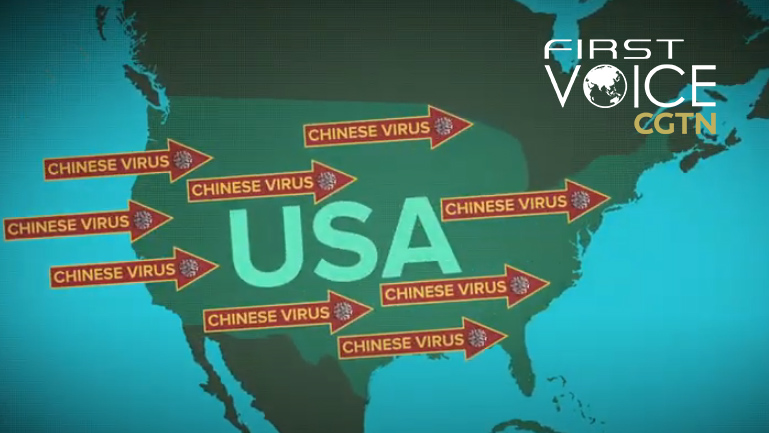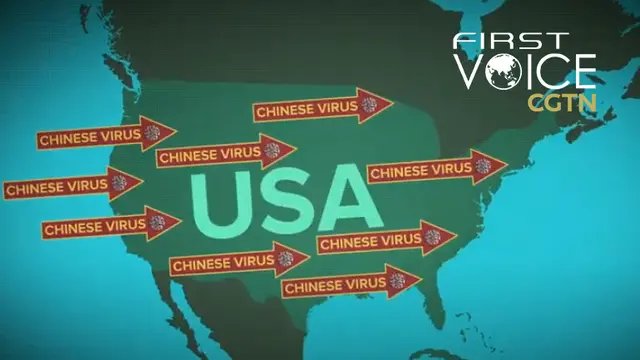
Editor's note : CGTN's First Voice provides instant commentary on breaking stories. The daily column clarifies emerging issues and better defines the news agenda, offering a Chinese perspective on the latest global events.
On June 13, the New York Times reported that some U.S. Senate Republicans are blaming China in their advertisements to get elected in the November Senate elections. Two days later, the U.S. House Foreign Affairs Committee released a 50-page report on the origin of the COVID-19 pandemic, in which the committee blamed China for the virus with no clear evidence.
As the U.S. propaganda against China is leveling up, the basic elements and routines of American propaganda haven't changed much, but the forms organized action have changed.
This is not the first time the U.S. political system is using reports as a strategy to blame such things on China. One should notice that they are releasing these long reports every month from April: First, a
57-page memorandum
urging Republican campaigns to blame China for the COVID-19 pandemic in April; then a 16-page strategic approach report
accusing the challenges posed by China in May; and lately the 50-page June interim staff report blaming China and the World Health Organization on the origins of the pandemic.
Now the forms have shifted to advertisements and other kind of attacking methods. Firstly, in speaking of the ads, these designed media forms are nothing but another type of propaganda products. Notice it is not only the election season of a president, but also the campaigning days of senators and representatives, as all 435 members in the House and 35 members in the 100-seat Senate is to be contested.
Mark Twain exposed in his famous article "Running for Governor" published in December 1870 that the U.S. election campaign truth is nothing but "baseless charges and mean and wicked falsehoods." That hasn't changed much after 150 years, as the blame words "China poisoned our people" appeared in an advertisement for Kathaleen Wall, a Republican candidate who ran a primary race in Texas, is just another evidence of baseless charge.

Screenshot of Texas congressional candidate Kathaleen Wall's campaign advertisement against China.
The election season will last until November, and the U.S. politicians may still have a couple of months to blame China for their domestic problems, and the forms are morphing into more than just one or two kinds of performances.
For example, the current U.S. administration has several top officials or former official including the U.S. Director of Trade and Manufacturing Policy Peter Navarro, who has written a series of book to demonize China even before entering the administration, and the U.S. former Ambassador to the United Nations Nikki Haley, who has set up a website made only to blame China all the time.
Speaking in the short-term, no matter how many dramas are on the road to come, or how many roles they may play, or how many types of masks they are going to wear to the masquerade election parties, these are only their own games and these games will be over soon.
Because the real facts are spoken not only by U.S. politicians, but by people from all around the world. According to a recent survey from the German poll company Dalia on how people from different countries see the COVID-19 response performances, nearly people from all the 50 countries say that "China's response to the COVID-19 is better than the United States'."
However, on the longer term, as China is seen as a strategic rival by the U.S. politicians, the credibility of the U.S. is in a low position. The U.S. politicians will not stop blaming China for whatever issue there may likely to come in the future, no matter whether Donald Trump stays or he is replaced by Joe Biden. China needs to get prepared for it, and so does the world.
Scriptwriter: Xiong Tong
(If you want to contribute and have specific expertise, please contact us at [email protected].)
 简体中文
简体中文

